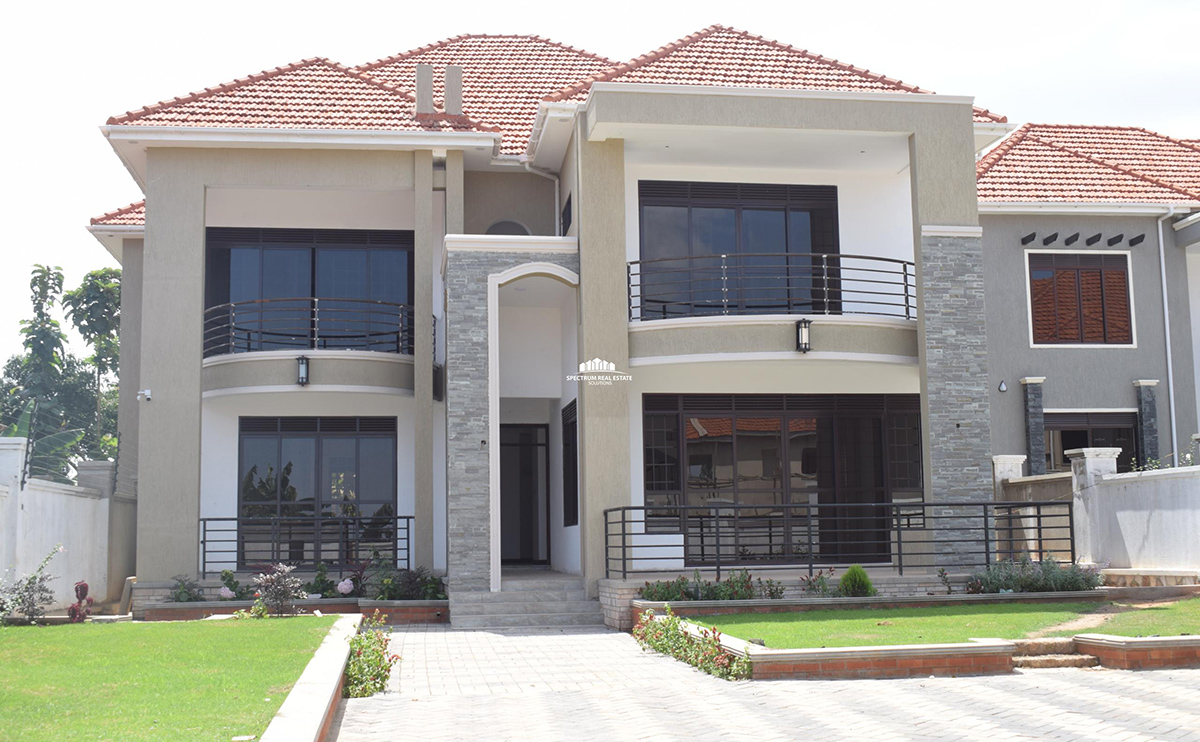- Location and Accessibility
The location of your house is one of the most crucial decisions. Choose a site that fits your lifestyle, whether you’re looking for a bustling urban setting or a peaceful rural area. Consider:
- Proximity to amenities: Ensure your home is near essential services like schools, hospitals, shops, and public transport.
- Land accessibility: A plot with good road access will save you from the challenges of transportation during construction and later when you move in.
- Future developments: Research any planned infrastructure projects, like new roads, commercial centers, or utilities, which might affect your property’s value.
- Land Ownership and Legal Requirements
Before you begin construction, ensure that the land you’re purchasing or already own has clear legal documentation. The Ugandan land system can be complicated, so be aware of the following:
- Land title: Ensure the land has a verified title deed. Avoid purchasing land without a proper title, as it may lead to disputes.
- Zoning laws: Confirm that the land is zoned for residential use and check for any local building restrictions.
- Land surveys: Get a professional land surveyor to confirm the size and boundaries of the land to avoid future disputes.
- Budget and Financing
A solid financial plan is essential for any construction project. Building a house requires considerable investment, so consider:
- Estimate costs: Include all aspects of construction such as materials, labor, permits, and legal fees. Don’t forget ongoing costs for utilities, maintenance, and property taxes.
- Financing options: Explore different sources of financing, such as savings, loans, or mortgages from local banks or financial institutions.
- Contingency fund: Always set aside a contingency budget (usually 10-15% of your total budget) to cover unforeseen expenses or price hikes.
- Design and Layout
The design of your house should reflect your needs, preferences, and the climate of the area. Some key design considerations include:
- Space requirements: Plan for adequate space for living areas, bedrooms, storage, and future expansions. Think about the number of family members and the lifestyle you envision.
- Energy efficiency: With Uganda’s fluctuating electricity supply and a focus on sustainable living, consider energy-efficient designs, such as solar panels, natural ventilation, and good insulation.
- Cultural and local preferences: Depending on the region, there may be certain cultural preferences or architectural styles that should be incorporated into your design.
- Choosing the Right Contractor and Builders
The quality of your house largely depends on the contractor and builders you hire. It’s essential to:
- Research potential contractors: Look for contractors with a solid reputation, experience, and successful previous projects. Check references, reviews, and past work.
- Get multiple quotes: Obtain several quotes to compare prices, timelines, and the quality of materials offered.
- Clear contract terms: Make sure all terms, including payment schedules, timelines, and penalties for delays, are clearly outlined in the contract.
- Materials and Construction Quality
Selecting the right materials is critical for the durability and aesthetic appeal of your home. Consider:
- Local vs. imported materials: While imported materials may offer higher quality or specific designs, they often come with a higher cost. Local materials are more affordable and environmentally friendly, but they must meet the necessary building standards.
- Building materials: Common materials in Uganda include bricks, cement, timber, steel, and corrugated iron sheets. Choose materials that suit your location, budget, and climate.
- Long-term durability: Prioritize materials that can withstand Uganda’s weather, such as heavy rains and high humidity, particularly in areas near lakes or swamps.
- Utilities and Infrastructure
Ensure that your house has access to essential utilities, such as:
- Water supply: If your plot is in an urban area, there may be piped water, but rural areas might require water harvesting systems, boreholes, or wells.
- Electricity: Check whether the area has a reliable electricity supply and whether you need to install backup systems like solar power.
- Waste disposal: Plan for a septic tank or connection to the sewer system if you’re in an urban area.
- Internet and communication networks: With the increasing need for connectivity, ensure that there’s access to reliable internet and mobile networks.
- Building Permits and Approvals
In Uganda, construction is regulated by the local government, and it’s essential to adhere to building codes and obtain the necessary permits.
- Planning permission: Apply for approval from the local council or urban authority for your house design.
- Building permits: Ensure you have the necessary documentation to legally begin construction.
- Inspection and compliance: During construction, local authorities may inspect the work to ensure it complies with safety standards and regulations.
- Timeframe and Project Management
Set a realistic timeline for completing your house and ensure you have a project manager or a trusted contractor overseeing progress. Some things to consider include:
- Weather delays: Construction can be delayed due to heavy rains, especially in the rainy season. Factor in possible weather interruptions.
- Project milestones: Break down the construction process into manageable phases—foundation, walls, roofing, finishing—each with deadlines to keep track of progress.
- Regular updates: Stay in close communication with your contractor for regular updates on the project’s progress.
- Security and Safety
- Ensure your property and future home are secure during construction and after completion.
- Fencing and gates: For privacy and security, consider building a secure boundary wall or fence around your property.
- Security systems: Install a security system like alarm systems, cameras, and proper lighting around the house.
- Safe construction site: Ensure that the construction site is safe for workers, with proper protective gear and safety measures in place.
- Future Expansion Potential
Think long-term about the potential for future expansion or modifications to your home. As your family grows or your needs change, you might want to add extra rooms, a garage, or a garden. Choose a design that allows for easy future modifications without compromising the original structure.
Conclusion
Building a house in Uganda involves much more than simply choosing a plot of land and designing a building. From the legalities of land ownership to selecting the right materials and contractors, careful planning is crucial for ensuring your home is safe, durable, and comfortable. By considering these key factors, you can avoid common pitfalls and ensure that your dream home becomes a reality. Whether you’re building in Kampala or a rural village, taking the time to plan and budget wisely will pay off in the long run.

